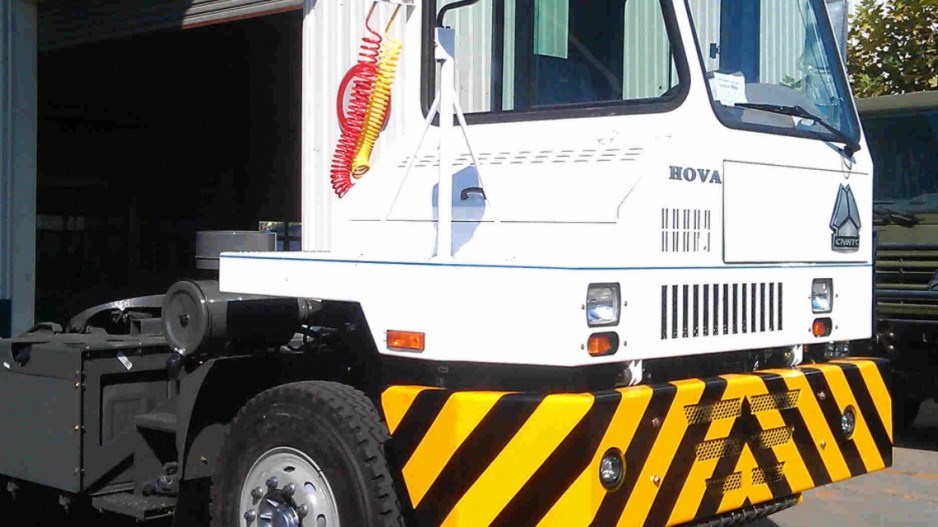A Vancouver-based company is highlighting a federal effort to boost innovation, reduce pollution at West Coast ports and diversify Western Canada’s economy.
In a joint press conference held August 3 in Burnaby, Navdeep Bains, minister of innovation, science and economic development, announced $25 million in funding for Western Economic Diversification Canada (WD), an agency promoting business development, innovation and diversification of Western Canada’s economy. At the same time, Vancouver hydrogen fuel cell company Loop Energy announced that its new system to extend the range of fuel-cell-powered heavy-duty yard trucks typically used in ports and distribution centres has become operational.
Loop received $760,000 of $14.8 million in federal funding for B.C. companies announced last March. It previously was granted $7.5 million by the government to deploy its new fuel cell module, which acts as an on-board power generator to charge batteries and capture energy through regenerative braking, allowing for extended range and faster refuelling. The development was aimed at addressing the limitations of battery-electric trucks for short- and regional-haul freight markets while providing an economically viable replacement for diesel engines.
“As the ports of Los Angeles and Long Beach, and others around the world, strive to eliminate polluting diesel trucks from the movement of goods, Loop is ready to help clean the air,” said Loop Energy president and CEO Ben Nyland.
Nyland said yard trucks powered by the new module have “the potential to substantially reduce emissions from port operations while achieving cost targets demanded by trucking operators, without subsidies.”
The Loop Energy announcement highlights a new federal emphasis on technology in economic development, in which regional agencies across the country, including WD, will focus on strengthening innovation capacity by supporting small and medium-sized businesses in adopting new technology; nominating 50 firms across the country to participate in a program aimed at helping them expand; investing $100 million annually in clean technology; and supporting 250 Indigenous economic diversification projects.
“There is no one-size-fits-all approach to diversifying the economy as each region has their own unique advantages,” Bains said. “By providing departments like Western Economic Diversification Canada with the tools and funding to do their job, we are working towards building a stronger, more innovative and inclusive economy.”
In 2015, Western Canada contributed 38% of Canada’s real economic output, and since November 2015, WD-funded projects have generated 8,200 jobs, approximately 3,400 of which are in B.C.




